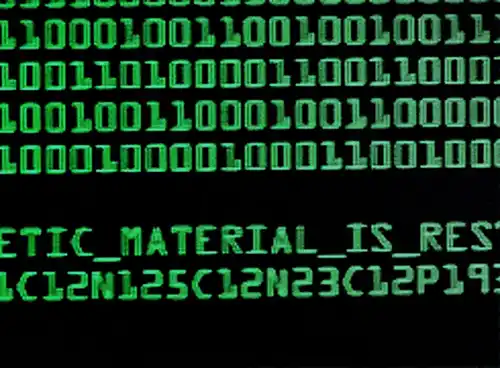Home >Web Front-end >JS Tutorial >Is random numbers in computers are random at all? JS version
Is random numbers in computers are random at all? JS version
- Barbara StreisandOriginal
- 2025-01-18 18:29:10692browse
Understanding JavaScript's Simulated Randomness: A Deep Dive into Math.random()
The seemingly effortless generation of random numbers in programming often masks the underlying complexity, especially given computers' inherently deterministic nature. This article explores how JavaScript simulates randomness using Math.random(), unveiling the mechanics behind generating what we perceive as random numbers.

The Illusion of Randomness in Computing
Computers, at their core, execute instructions sequentially. So, how do they produce numbers that appear random?

Pseudo-Random Number Generators (PRNGs)
The "randomness" provided by Math.random() isn't truly random; it's pseudo-random. Pseudo-random number generators (PRNGs) employ mathematical algorithms to create sequences of numbers exhibiting random-like behavior.
Key characteristics of PRNGs:
- Seed Value: A starting value (the seed) initiates the number sequence. The seed dictates the entire sequence.
- Deterministic Behavior: Knowing the algorithm and seed allows prediction of the entire number sequence.
- Periodicity: PRNGs inevitably repeat their sequences after a specific number of iterations.
JavaScript's Math.random() typically utilizes algorithms like XorShift or Mersenne Twister (the precise algorithm depends on the JavaScript engine, such as V8 in Chrome).

Decoding Math.random()
Math.random() is JavaScript's primary random number generator. It functions as follows:
It produces a floating-point number between 0 (inclusive) and 1 (exclusive).
Examples include 0.2315601941492, 0.6874206142281, or 0.9912760919023.
<code class="language-javascript">// Random number between 0 and 1 console.log(Math.random()); // Random integer between 0 and 9 console.log(Math.floor(Math.random() * 10)); // Random number between 1 and 100 console.log(Math.floor(Math.random() * 100) + 1);</code>
The Inner Workings of Math.random()
The process involves these steps:
- An initial seed value is used. This seed is often derived from the system clock or another unique source.
- The algorithm applies mathematical transformations to the seed to create a new number.
- This new number is divided by a large constant (for normalization between 0 and 1).
- This process repeats for every call to
Math.random(), generating the next number in the sequence.
This predictable sequence (given the seed) makes it suitable for simulations and games, but unsuitable for cryptographic applications.
Why True Randomness Remains Elusive
Math.random()'s deterministic algorithm means its sequence is reproducible if the seed and algorithm are known. For security-sensitive tasks like encryption, cryptographically secure random numbers are essential, generated using the Web Crypto API:
<code class="language-javascript">// Random number between 0 and 1 console.log(Math.random()); // Random integer between 0 and 9 console.log(Math.floor(Math.random() * 10)); // Random number between 1 and 100 console.log(Math.floor(Math.random() * 100) + 1);</code>
The Challenge of Randomness in Deterministic Systems

Computers' binary nature (0s and 1s) clashes with the inherent uncertainty of randomness. To simulate randomness effectively:
- External Sources: Systems often use unpredictable external data (mouse movements, keystrokes, system clock) for seed values.
- Entropy Pools: Operating systems maintain entropy pools, collecting noise from various sources to enhance randomness.
Conclusion: A Necessary Illusion
Randomness in computers is a carefully constructed illusion, reliant on sophisticated algorithms and initial seeds. While Math.random() is practical for many applications, its limitations and deterministic nature must be acknowledged. For security and true randomness, cryptographic methods are necessary.
Let's appreciate the intriguing interplay between determinism and the simulated randomness that drives our code!

The above is the detailed content of Is random numbers in computers are random at all? JS version. For more information, please follow other related articles on the PHP Chinese website!
Related articles
See more- An in-depth analysis of the Bootstrap list group component
- Detailed explanation of JavaScript function currying
- Complete example of JS password generation and strength detection (with demo source code download)
- Angularjs integrates WeChat UI (weui)
- How to quickly switch between Traditional Chinese and Simplified Chinese with JavaScript and the trick for websites to support switching between Simplified and Traditional Chinese_javascript skills

